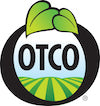Gut Bacteria May Predict Food Allergies

The bacterial colonies in the digestive system start to develop at an early age, and the healthier the food is that we feed our children certainly impacts the development of beneficial gut bacteria. Now, new research says the levels and variety of healthy intestinal flora may be helpful in predicting the risk of food allergies and asthma in children, and may even be beneficial in prevention of these conditions.
That’s the conclusion of recent research out of the University of Alberta in Canada. The study was published in a recent issue of the journal Clinical and Experimental Allergy.
According to the researchers, infants at three months of age with less varied microbiota may be more at risk for developing certain food sensitivities, including peanuts, milk and eggs, with an increased likelihood of those sensitivities becoming allergies.
The researchers looked at stool samples of more than 160 infants between the ages of 3 and 12 months, with food sensitivities being determined at 12 months of age with skin testing on the children. According to Food Navigator, the younger infants who had “low microbiotic richness in their gut, as well as imbalance of the bacteria Enterobacteriaceae and Bacteroidaceae,” were more likely to develop the allergies or sensitivities at a year. The predictive capabilities of the bacteria imbalances could become more fine tuned in the future, giving the medical community early tools to help thwart life-threatening allergies.
“Our findings suggest that gut colonization during infancy may influence the development of food allergy and atopic disease and could present novel targets for intervention,” the study authors wrote.
According to the researchers, as many as 28 percent of pre-school aged children in the U.S. have food sensitivities.
The study’s findings support other research that has linked diverse gut bacteria with improved health and wellness. And other recent research has found benefits in early introduction to common allergens to help children build immunity.
Leave a comment
Comments will be approved before showing up.


